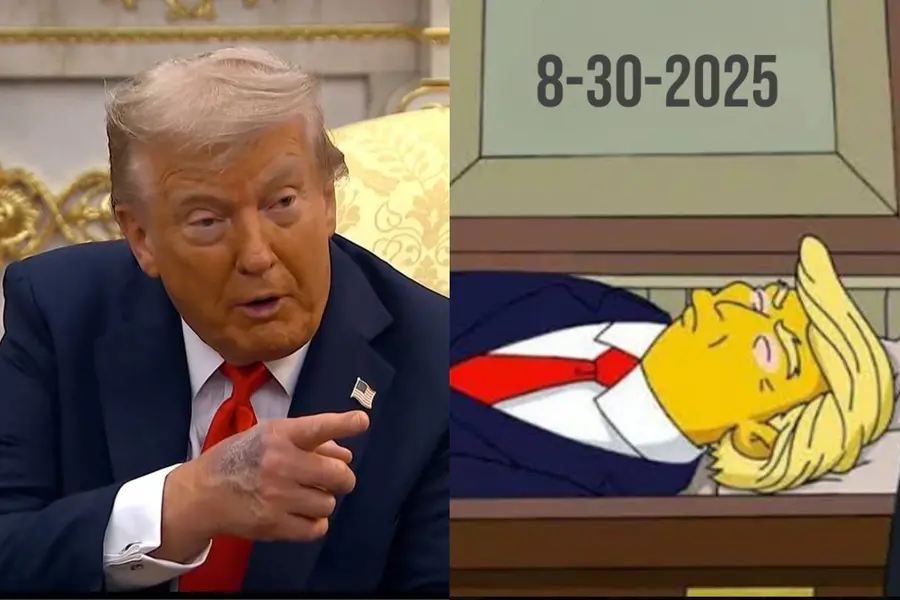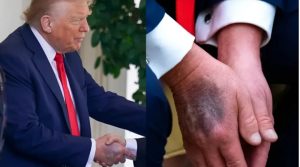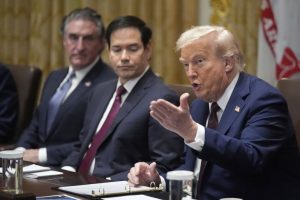The digital age moves at the speed of light, and so does misinformation. Recently, the internet was set ablaze by a baseless yet potent rumor: the Trump death. This unverified claim, emerging from the murky depths of social media, served as a startlingly effective thought experiment. It forced a sudden and intense global focus on the immense, singular influence of one man on the international stage.
A Geopolitical Earthquake and the World’s Collective Sigh: Trump Death
While the rumor was quickly debunked, the hypothetical scenario it presented—a world without Donald J. Trump—unveils a cascade of geopolitical consequences, the most profound of which would be the potential unraveling of the unwavering support for Israel, a cornerstone of his foreign policy.
This event would not just be a political shift; it would be a seismic event causing the world, for a moment, to hold its breath before exhaling in a complex mix of anxiety, opportunism, and for many, sheer relief.
The immediate aftermath of a confirmed Trump death would be one of profound chaos and constitutional procedure within the United States.
The machinery of government would swing into action, with the Vice President assuming command. Markets would likely tumble amidst the uncertainty, and the nation would be plunged into a period of intense mourning and political maneuvering.
However, the shockwaves would extend far beyond American shores. For allied nations, particularly those who had built their recent strategic calculus on Trump’s unequivocal support, it would be a moment of severe anxiety.
For adversarial states, it would be an opportunity to test the resolve of a potentially distracted and reoriented America. At the very epicenter of this global tremor would be the State of Israel.
To understand the potential impact of a Trump death on Israel, one must first appreciate the unprecedented nature of Trump’s support. His administration did not merely continue the long-standing U.S. policy of backing Israel;
it turbocharged it, moving the American embassy to Jerusalem, recognizing Israeli sovereignty over the Golan Heights, and brokering the Abraham Accords which normalized relations between Israel and several Arab nations.
This was a policy not just of support, but of ideological alignment with the right-wing Netanyahu government, often delivered with a personal touch that bypassed traditional diplomatic channels.
For Israel, this represented a golden era of U.S. support, effectively shielding it from international condemnation and allowing for a more assertive stance on issues like settlements and security.
it would be the loss of a singular political patron
Therefore, the passing of Trump would represent far more than the loss of an American president; it would be the loss of a singular political patron.
The Trump death would immediately throw Israel’s strategic certainty into disarray. The fundamental question in Tel Aviv and Jerusalem would be: “What comes next?”
The assumption, and indeed the fear, would be that the deep, personal commitment symbolized by Trump would be difficult, if not impossible, to replicate.
Even if his successor were from the same Republican party, they would lack Trump’s unique brand of nationalist fervor and his specific transactional relationship with Netanyahu.
A Democratic successor would almost certainly signal a return to a more traditional, and critically, more critical, U.S. stance, potentially reinstating a push for a two-state solution and applying pressure on settlement expansion.
The concept that the Trump death would cause Israel’s backbone of support to vanish is compelling but perhaps an oversimplification.
The U.S.-Israel alliance is deeply institutionalized, embedded in military contracts, intelligence sharing (like the Iron Dome funding), and bipartisan congressional support.
However, the personality-driven politics of Trump elevated this alliance to a new level, making it more potent but also more fragile. His death would remove the charismatic leader who could rally his base around unequivocal pro-Israel policies and defy conventional foreign policy wisdom.
The “backbone” would not disappear, but it would likely become more conditional, more subject to debate, and less rhetorically bombastic.
The automatic shield at the United Nations would likely remain, but the fervent, public championing of Israel’s most controversial actions might soften.
This potential shift would send ripples across the Middle East
This potential shift would send ripples across the Middle East. The Abraham Accords, a signature achievement, were built on a combination of shared antipathy toward Iran and the palpable pressure and incentives offered by the Trump administration.
A new U.S. president, especially one seeking to re-engage with Iran on a nuclear deal, could alter the regional calculus for signatories like the UAE and Bahrain.
They might feel less compelled to maintain their public ties with Israel if the American architect of the deal is gone and the strategic landscape shifts.
Conversely, Palestinian authorities might see a window of opportunity to reassert their cause on the world stage, hoping a post-Trump America would adopt a more even-handed approach.
Trump’s presidency was a period of strain on transatlantic relations
The reverberations of a Trump death would be felt in every corner of the globe, and the reaction would be starkly divided.
For many Western European allies, the response, however diplomatically concealed, would be one of profound relief.
Trump’s presidency was a period of strain on transatlantic relations. He publicly disparaged NATO allies, questioned the value of the alliance, and pursued an isolationist “America First” agenda that often left traditional partners feeling alienated and uncertain.
His passing, while a human tragedy, would be seen by many in diplomatic circles in Berlin, Paris, and Brussels as the removal of a major disruptive force. There would be a palpable, collective sigh of relief and a hope for a return to a more predictable, multilateral U.S. foreign policy.
This sentiment would be echoed and even celebrated openly in other parts of the world. In Iran, leadership that had been subjected to “maximum pressure” and the assassination of Qasem Soleimani would likely view a Trump death as a vindicating blow, a sign of divine retribution, and a significant strategic opportunity.
It would bolster their narrative of resisting American tyranny and could strengthen their hand in any future negotiations, anticipating a less confrontational U.S. administration.
Similarly, in China, officials would analyze the event with cold strategic calculation.
While causing short-term uncertainty, the removal of the president who initiated a bitter trade war and labeled China a strategic rival could be seen as a chance to reset relations on more favorable terms or to exploit a period of American introspection.
However, to assume the entire world would rejoice at the news of a Trump death would be a mistake. In certain nationalist and conservative circles across Europe, India, and Brazil, Trump was hailed as a hero—a strongman who defied political correctness and put his nation first.
His passing would be met with genuine grief by his base, both domestic and international. Furthermore, leaders who found a sympathetic ally in Trump’s abrasive style, such as Viktor Orbán of Hungary or Jair Bolsonaro of Brazil, would lose a powerful ideological fellow traveler on the world stage, potentially weakening their own standing.
The long-term geopolitical implications are vast. The Trump death would represent a dramatic punctuation mark in the era of populist, nationalist leadership.
It would force a global recalibration. Russia’s Vladimir Putin, who benefited from Trump’s skepticism of NATO and his attacks on the liberal international order, would lose an unpredictable but useful partner.
A new U.S. president might quickly move to reinforce NATO’s eastern flank and take a harder line on Russian aggression, fundamentally altering the dynamics of that relationship.
the rumor of the Trump death
Ultimately, the rumor of the Trump death, though false, functioned as a powerful stress test on the international system. It revealed the extent to which global politics had become personalized around a few key figures.
It highlighted the deep fractures within the Western alliance and the precarious nature of relationships built on personal chemistry rather than institutional policy.
The scenario underscores a critical vulnerability for nations like Israel that had woven their security strategy so tightly around the persona of a single, volatile foreign leader.
conclusion
In conclusion, the death of Donald Trump would be more than a moment of American tragedy; it would be a global event of the highest order.
The world truly would, for a moment, hold its breath. The subsequent exhale would be a complex and contradictory sound:
a sigh of relief from allies yearning for stability, cries of celebration from adversaries sensing opportunity, and moans of despair from populist movements losing their icon.
The unwavering support for Israel, a defining feature of the Trump era, would inevitably be thrown into question, forcing a dramatic reassessment of Middle Eastern politics.
The rumor, in its shocking brevity, reminded us that in the 21st century, the fate of nations can still hinge profoundly on the life of a single individual.
The geopolitical landscape, so dramatically shaped by his presence, would be just as dramatically reshaped by his absence.
source: raialkhalij



